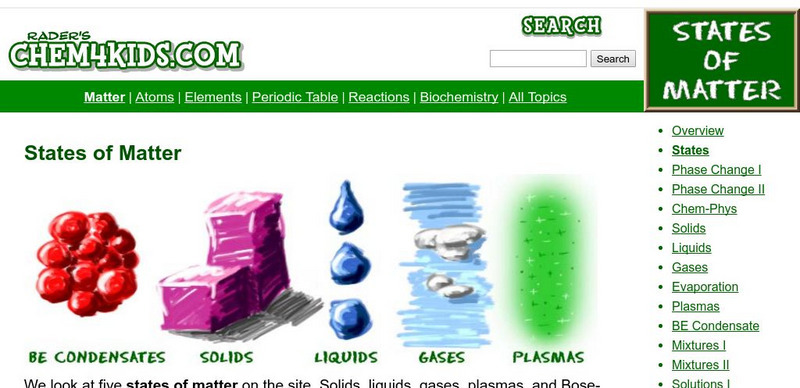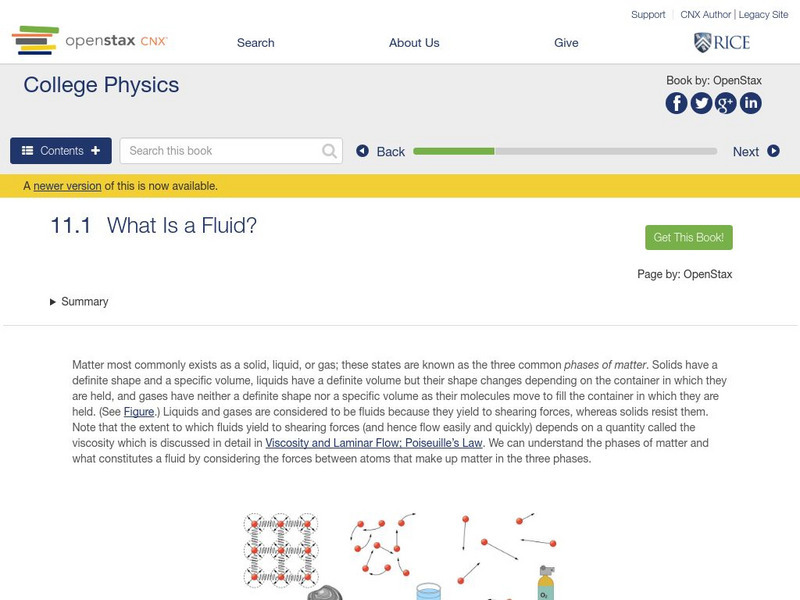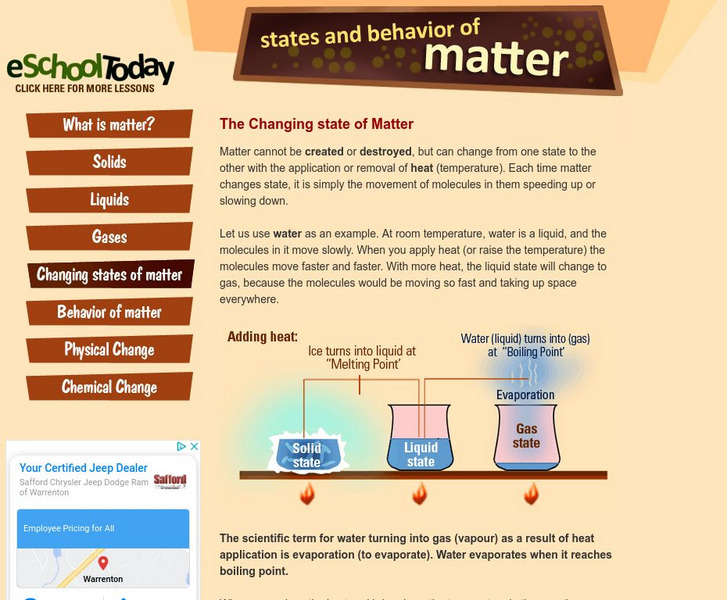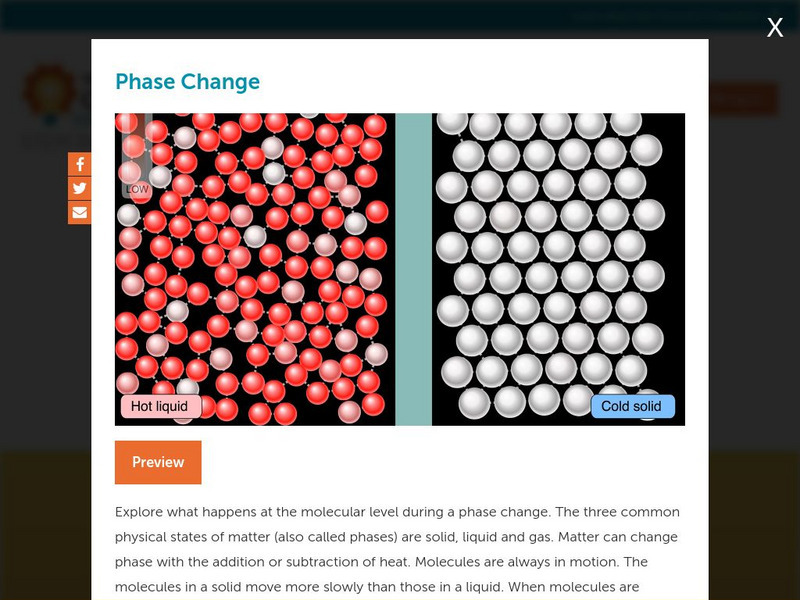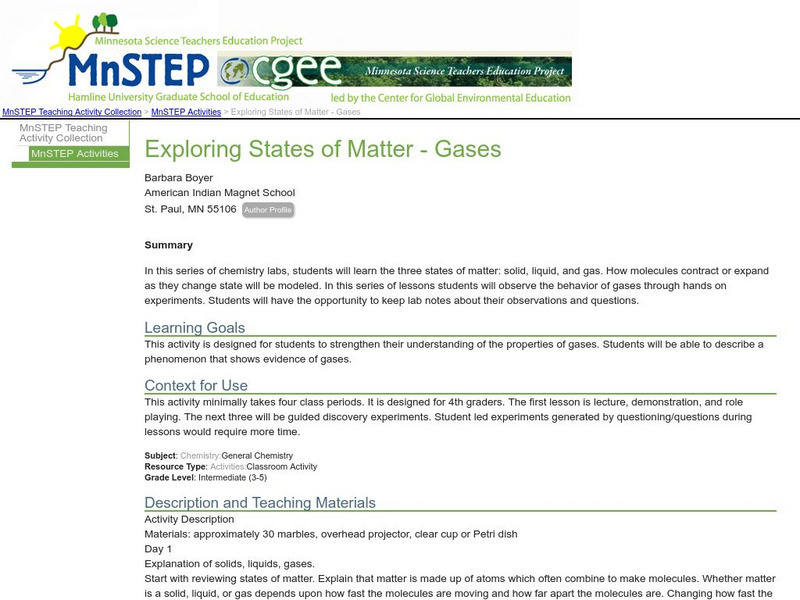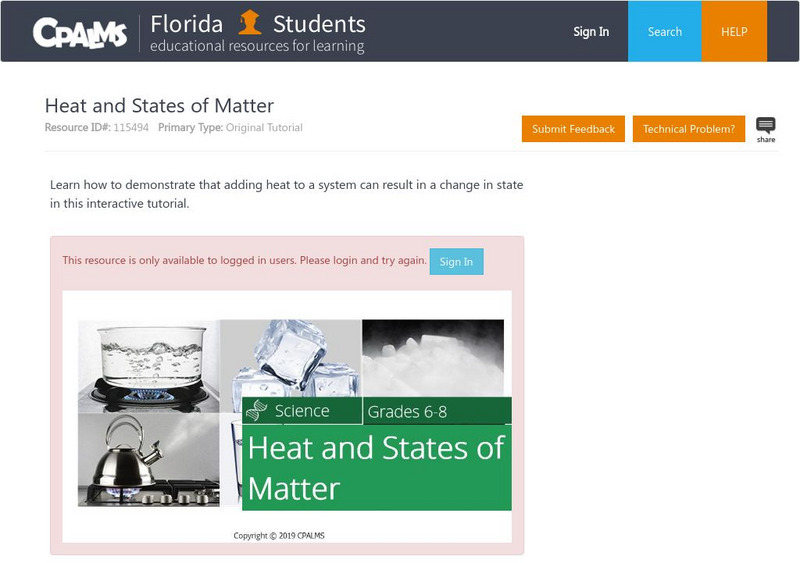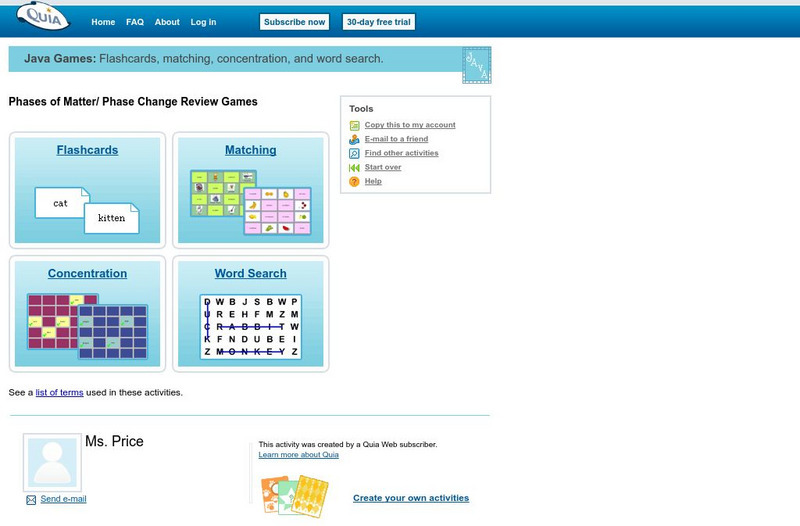Curated OER
Using Density to Identify Wood Types
Students identify different woods based on their density. In this density lesson plan, students use a triple beam balance to find the mass and a metric ruler for the volume. They look through various wood blocks and identify what type of...
Curated OER
Liquids and Solids
Students describe the properties of solids and liquids, and explain how a semiconductor works. In this atom lesson plan students demonstrate the bonding properties of carbon and silicon.
Curated OER
Chemquest: Physical Changes or Chemical Reactions
Students explore physical and chemical changes. For this chemistry lesson plan, students will go outside to observe changes seen in nature. Students will then work in the lab to identify changes at different stations prior to doing a...
Curated OER
Survival Science: How Evaporation and Condensation Can Save Your Life!
Eighth graders demonstrate how scientific principles can be used to provide resources in an emergency situation. In this evaporation lesson students view a demonstration on a solar still and see a brief PowerPoint presentation.
Curated OER
Nuclear Reactions
In this nuclear reaction worksheet, students determine the missing particle from the reaction and then name that particle. This worksheet has 18 problems to solve.
Curated OER
The Human Body
Students explore human growth and development as they participate in class activities, reading and discussion. Worksheet and handouts are included in the lesson.
Curated OER
T-Shirt Chromatography
Students study about chromatography, a process used to separate mixtures. They see that chromatography is used to detect, separate or purify different substances. This nice lesson results in a beautiful t-shirt for each student!
PBS
Pbs Learning Media: Phases of Matter: Interactive Lesson
Learn about the three phases of matter, and how the addition and removal of thermal energy (also known as heat) affects them.
Concord Consortium
Concord Consortium: Stem Resources: States of Matter
Using simulations observe what solids, liquids, and gases look like at the atomic scale. After observing the different states of matter at their atomic level, students will be able to conclude about the forces and attractions that exist...
University of Colorado
University of Colorado: Ph Et Interactive Simulations: States of Matter: Basics
After watching this simulation, students will be able to describe characteristics of the three states of matter. They will watch as atoms and molecules change between solid, liquid and gas phases.
University of Colorado
University of Colorado: Ph Et Interactive Simulations: States of Matter
Watch different types of molecules form a solid, liquid, or gas. Add or remove heat and watch the phase change. Change the temperature or volume of a container and see a pressure-temperature diagram respond in real time. Relate the...
Chem4kids
Chem4 Kids: States of Matter
This resource explains the five states of matter and methods of changing from one state to another.
OpenStax
Open Stax: What Is a Fluid?
From a chapter on Fluid Statics in a Physics textbook. This introductory section of the chapter covers the three common phases of matter, their physical properties, and how atoms are arranged in solids, liquids, and gases. Includes a...
University of Colorado
University of Colorado: Ph Et Interactive Simulations: University of Colorado: States of Matter: Basics
An interactive simulation will heat, cool and compress atoms and molecules. Watch as they change between solid, liquid and gas phases. Recognize that different substances have different properties which will affect the temperatures for...
eSchool Today
E School Today: The Changing State of Matter
Learn about the changing states of matter.
Center for Literacy and Disability Studies, University of North Carolina at Chapel Hill
Tar Heel Reader: Three Kinds of Matter: Solids, Liquids, and Gases
Find out about the three states of matter: solids, liquids, and gases.
Science Education Resource Center at Carleton College
Serc: Freezing and Phase Change: How Do You Make Ice Cream?
Students will be expanding a study of phase changes after experiences with exploration of the three phases of matter. They apply what they have learned through freezing water and create a tasty ice cream treat.
Concord Consortium
Concord Consortium: Stem Resources: Phase Changes
This activity reviews of states of matter, then relates them to atomic movement as it is affected by attractions between atoms and the addition of energy. Latent heat and evaporative cooling are also topics covered. Multiple-choice and...
Science Education Resource Center at Carleton College
Serc: Exploring States of Matter Gases
In this series of chemistry labs, students learn about the three states of matter by observing how molecules contract or expand as they change state.
CPALMS
Florida State University Cpalms: Florida Students: Heat and States of Matter
Learn how states of matter can change as heat is added to a system.
Museum of Science
The Atom's Family: Phases of Matter
Help the Phantom choose a material and observe the changes at different temperatures in the molecule chamber. What happens to the elements or molecules as the temperature changes?
Chem Tutor
Chem Tutor: States of Matter
A very descriptive site that allows students to understand the different states of matter at the atomic level. Also discusses the process of phase changes and displays phase change graphs. Thermochemistry is also touched upon for high...
Center of Science and Industry
Cosi Columbus: Can You Stand the Pressure
Science experiment that demonstrates the four states or phases of matter: solid, liquid, gas, and plasma. Includes full list of materials, procedures, and scientific explanation of how you change water from a liquid state to a gaseous...
Quia
Quia: Phases of Matter
Four activities for reviewing vocabulary and definitions related to changes in states of matter.











